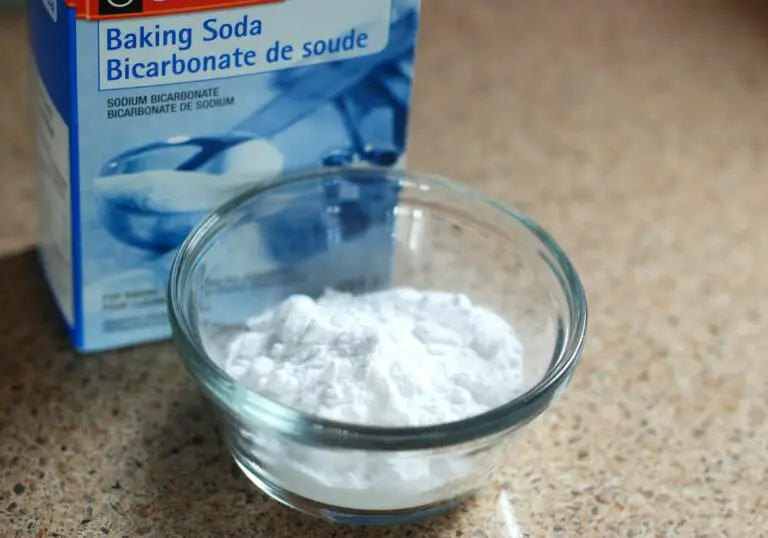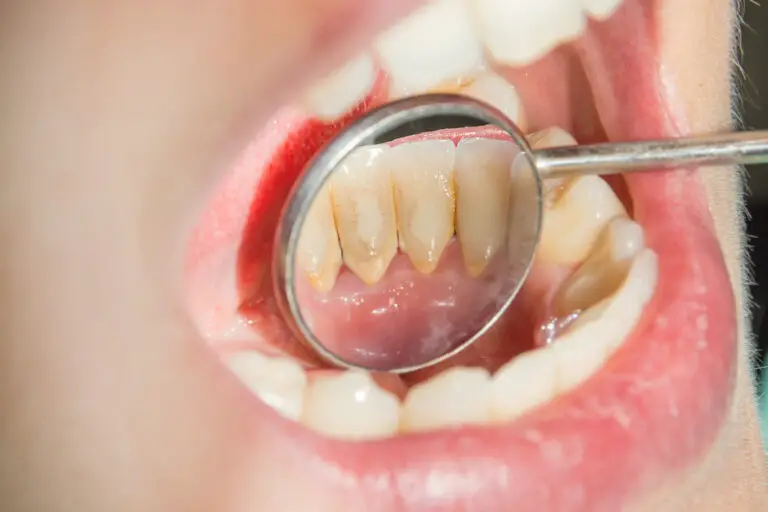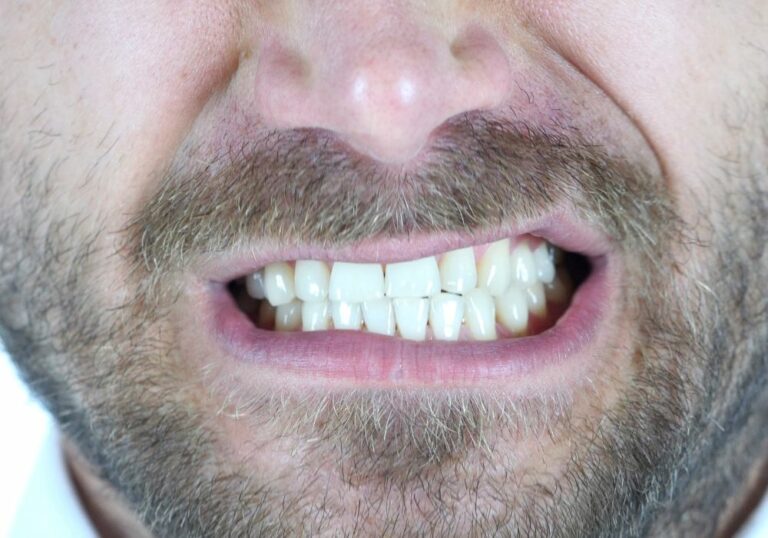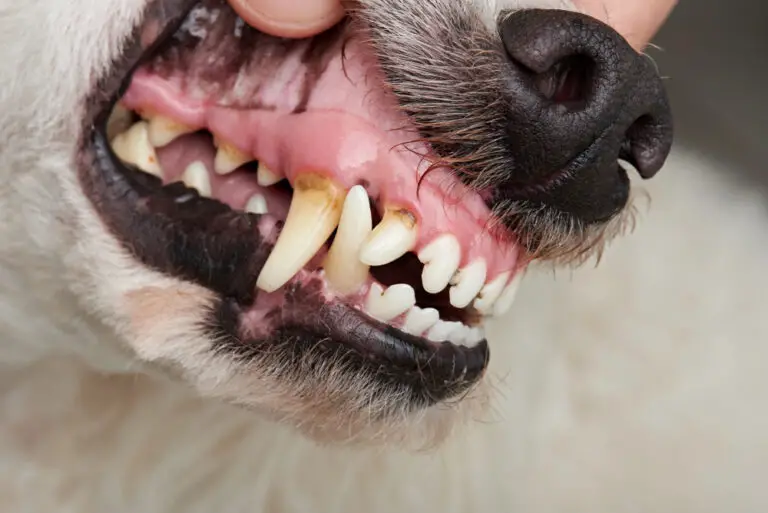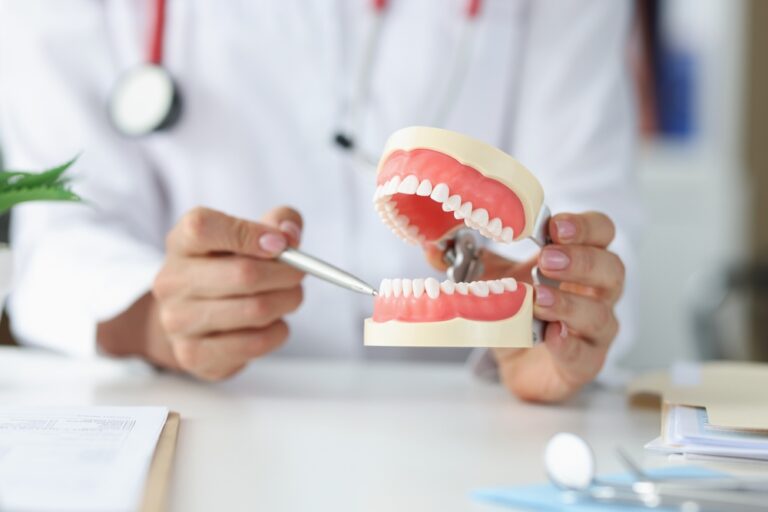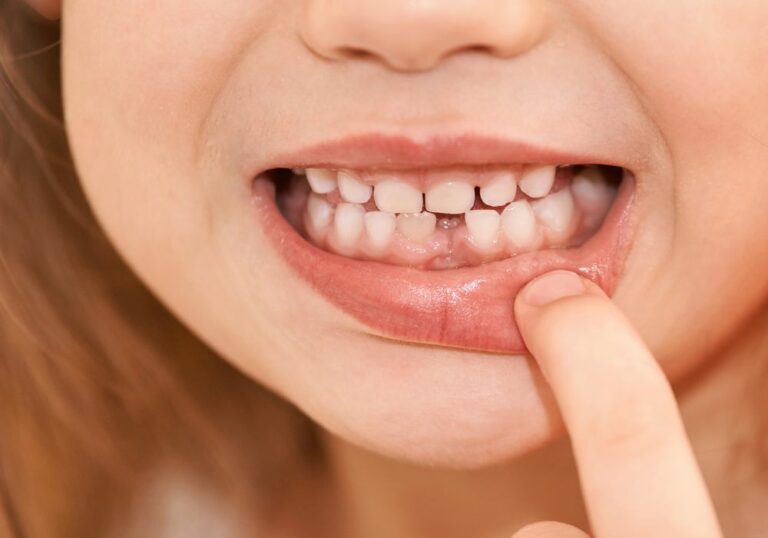Flossing is one of the pillars of oral hygiene and dental care. It’s rightfully recommended by every dentist for preventing plaque buildup, gum disease, tooth decay, and bad breath.
But when you first establish a flossing routine, you may notice an odd sensation – your teeth feeling strangely tight, pressure, or even sore after you floss.
This symptom is common and harmless, but can be confusing or concerning if you don’t know why it happens. You may wonder:
- Why do my teeth hurt after I floss?
- Is it normal for teeth to feel tight hours after flossing?
- Does the uncomfortable feeling mean I’m damaging my teeth?
- Should I stop flossing if it keeps making my teeth hurt?
Rest assured, there are good explanations for post-flossing tooth tightness, and it’s no cause for alarm. This minor sensitivity is a small price to pay for the oral health benefits of flossing.
What Causes That Tight, Uncomfortable Feeling?
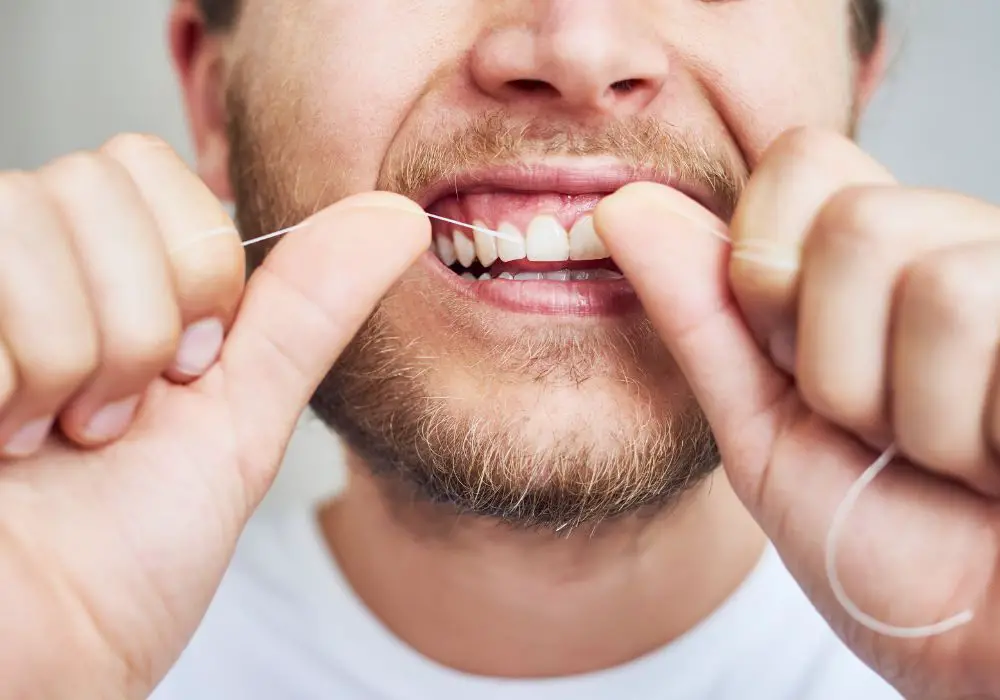
It’s very common to experience a feeling of tightness or pressure in your teeth after you floss. This symptom can be confusing or concerning if you’ve never felt it before.
There are several potential reasons that flossing provokes this temporary discomfort and tightness in your teeth:
Inflammation in the Gums
One of the most common reasons for tooth tightness after flossing is that it aggravates slightly inflamed or irritated gums. This inflammation is often caused by plaque buildup.
Plaque is a sticky film of bacteria and food debris that constantly forms on teeth. When plaque accumulates in the small spaces between teeth, it triggers inflammation in the gums – a condition called gingivitis.
The friction and pressure of floss scraping between teeth disturbs this plaque biofilm. This interaction provokes inflamed gum tissue and makes your gums feel sore and irritated.
Since gum tissue is closely interconnected with teeth, this soreness radiates into the teeth themselves. The result is a feeling of general tightness and sensitivity once you’ve finished flossing.
Improved Circulation to the Gums
Interestingly, a tight or sensitive feeling after flossing could also be a sign that blood flow to your gums has improved!
Trapped plaque between teeth can compress gum tissue and restrict healthy circulation in that area. Flossing effectively massages plaque away and dislodges bacteria so that blood can flow more freely again.
This renewed rush of blood supply to the gums causes them to feel more sensitive and tender. The gums are flushed with fresh oxygen and nutrients, which enhances healing. But in the short term, the boosted circulation makes your teeth feel unusually tight.
Agitation from Cleaning Between Teeth
In some cases, the uncomfortable tightness after flossing has a purely mechanical cause.
The simple friction of floss scraping intensely between teeth can provoke sensitivity. Most people only brush their teeth superficially and don’t clean between them. So flossing provokes an agitation that toothbrush bristles don’t reach.
If you have larger gaps between certain teeth, the floss may snap against the side of the tooth and compress the periodontal ligament. This releases inflammatory compounds that radiate as tightness.
Gums may also remain irritated and tender for a little while after the vigorous cleaning of flossing. If you haven’t flossed in a long time, tissues deep between teeth become very sensitive when disturbed.
Why Stay Diligent About Flossing?

While the tight sensation after flossing can be annoying, it’s critical not to use it as an excuse to avoid flossing.
Regular flossing is one of the most important and beneficial oral hygiene habits you can practice. Here’s a closer look at the unique health benefits it provides:
- Plaque Removal: Floss is the only method that effectively removes sticky plaque from between teeth that brushing can’t reach. This prevents plaque buildup and stops gingivitis in its tracks.
- Gum Disease Prevention: Plaque left between teeth eventually calcifies into tartar that worsens gum infection. Flossing disrupt this disease process and prevents further progression.
- Bad Breath Prevention: Bacteria thrive in the spaces between teeth, producing compounds that cause bad breath. Flossing cleans out these odor culprits.
- Tooth Decay Prevention: Bacteria between teeth produce acids that erode tooth enamel and cause cavities. Flossing scrapes away this bacteria to avoid decay.
- Gum Recession Prevention: Gum recession is worsened by poor cleaning between teeth. Regular flossing maintains healthy gum tissue and prevents recession.
- Avoids Tooth Loss: Ignoring plaque between teeth can ultimately lead to dental infections, tooth decay, and tooth loss in severe cases.
When weighed against those dangers, minor tightness or irritation after flossing seems like a small price to pay for excellent dental health. Don’t let that deter you from making flossing a daily habit.
Tips to Prevent Post-Flossing Discomfort
Here are some tips to make flossing more comfortable if your teeth are very sensitive afterward:
- Floss gently: Avoid snapping floss roughly between tight teeth. Gently guide it along the side of each tooth instead.
- Try waxed floss: The wax coating reduces friction against the teeth compared to bare floss. This minimizes agitation.
- Rinse with warm salt water: Swishing with warm saline solution helps soothe irritated gums after flossing.
- Use gum desensitizing toothpaste: Brushing with desensitizing toothpaste before flossing can reduce discomfort.
- Floss consistently: If you floss daily, your gums will become healthier and less prone to irritation.
- Get professional cleanings: Regular dental cleanings remove hardened tartar between teeth that flossing can’t. This reduces irritation.
- Use mouth guards: Wearing a night guard prevents teeth grinding and clenching that contribute to sensitivity.
- Wait and let gums adjust: It takes gums about 2 weeks to adjust to new flossing stimulation. Discomfort usually resolves.
With some small adaptations, you can make flossing comfortable while still reaping all its benefits for dental health. Don’t abandon this critical habit!
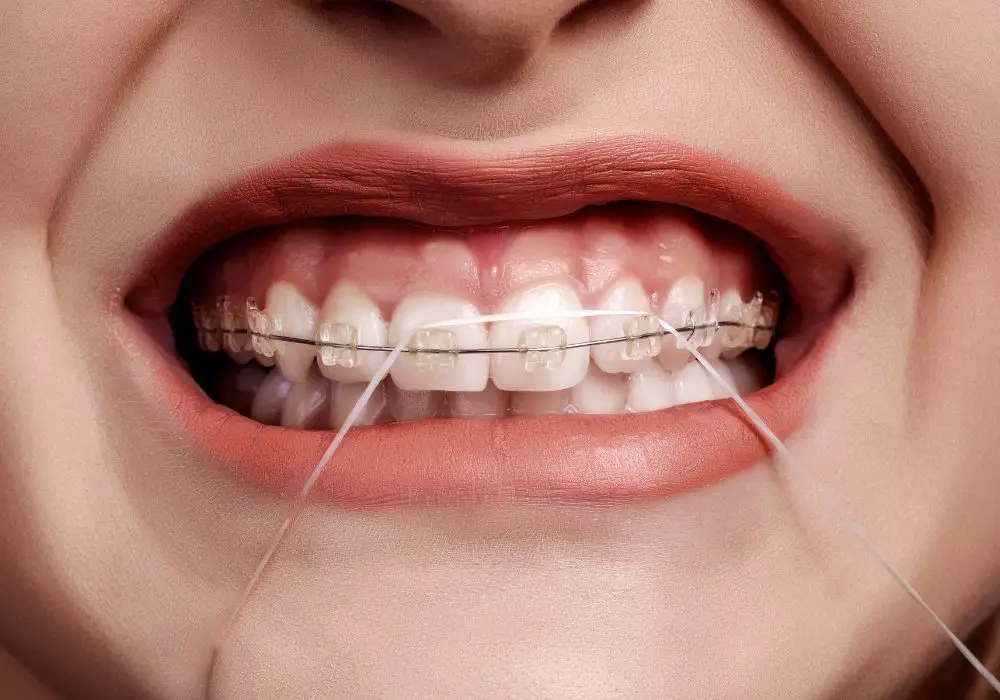
Frequently Asked Questions About Post-Flossing Tooth Tightness
Is it normal for teeth to hurt after flossing?
Yes, it’s very common for teeth to feel somewhat sensitive, tight, or uncomfortable after flossing. This temporary irritation is harmless and resolves within a day or two.
Why do teeth still hurt 2-3 days after flossing?
Prolonged tooth pain more than 1-2 days after flossing is not normal. Contact your dentist if sensitivity persists more than 48 hours, as it may indicate an underlying dental problem.
Will the tightness go away if I keep flossing?
Yes, the gums just need time to adjust and become less prone to irritation. If you floss daily, the tightness should gradually improve within 2-4 weeks.
My gums bleed when I floss. What should I do?
Occasional minor bleeding is common with gum inflammation. But consistent heavy bleeding indicates gum disease. See your dentist promptly if gums won’t stop bleeding when flossing.
Why is flossing painful after not doing it for years?
Long-term plaque buildup between teeth becomes mineralized and extra sensitive to disturbance. After years of no flossing, suddenly irritating these areas causes more intense soreness.
Can I use oral rinses to prevent flossing discomfort?
Yes, using antiseptic mouthwashes like cetylpyridinium chloride before flossing can reduce pain by desensitizing gums. Ask your dentist for rinse recommendations.

